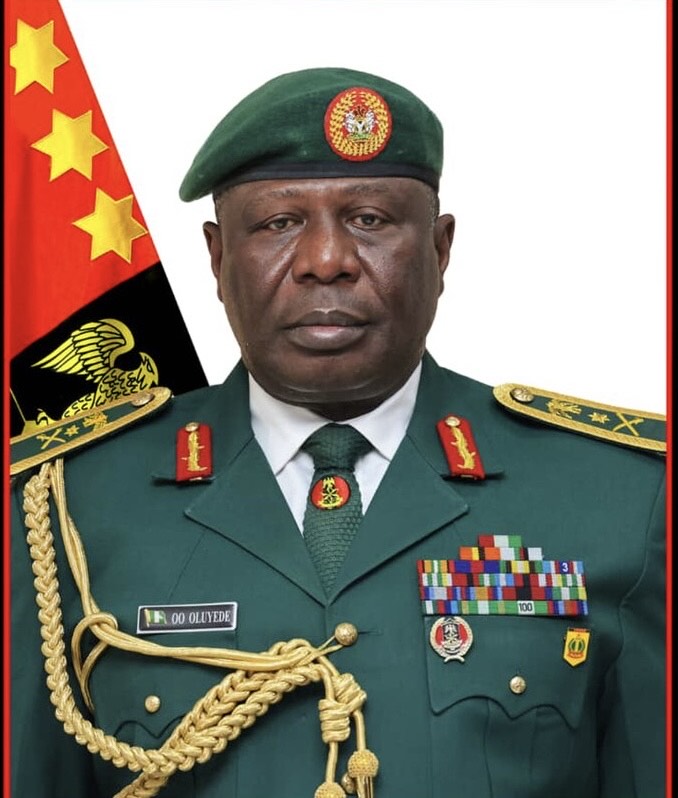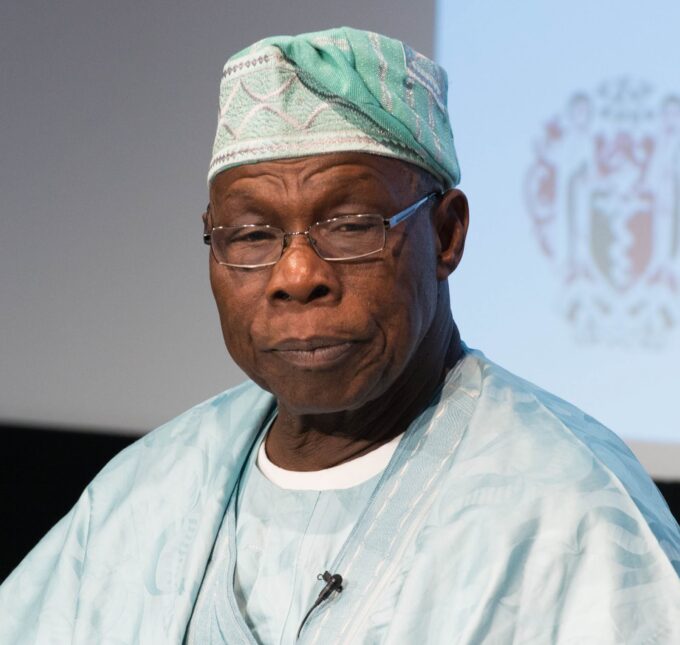At the core of the Nigerian Army’s evolving internal reforms is the “Soldier First” concept, a policy direction that places the wellbeing, motivation, and professional fulfilment of troops at the heart of military leadership and planning. At the recent commemoration of the Nigerian Army’s 162nd anniversary in Kaduna, the concept was prominently reaffirmed, reflecting a growing institutional recognition that operational effectiveness begins with the condition of the soldier. In line with this commitment and contrary to recent claims, the Nigerian Army has placed renewed premium on welfare, entitlements, housing, promotions, and structured career progression. Central to the implementation of these reforms is the Army’s strict adherence to the Harmonised Terms and Conditions of Service (HTACOS) 2024, which provides the regulatory framework guiding the careers, welfare, and promotion of soldiers, ratings, and airmen across the services. Chiemelie Ezeobi reports that under the leadership of the Chief of Army Staff, Lieutenant General Olufemi Oluyede, this approach has gained strong momentum in pushing for policies that centre personnel as the core of the military
In an era of increasing operational demands and internal security pressures, the Nigerian Army is gradually repositioning itself, not only on the battlefield, but also in the hearts of its personnel. At the heart of this quiet transformation is a renewed emphasis on the welfare and promotion of personnel, an area that has long defined morale, discipline, and commitment within the ranks.
The Soldier First Concept
For Lieutenant General Olufemi Oluyede, the Chief of Army Staff (COAS), welfare is not a footnote in military planning, it is a core pillar. A seasoned combat officer with a reputation for both discipline and empathy, Oluyede has consistently championed the idea that the strength of any fighting force lies as much in its barracks as it does in its armoury.
In fact, he has aligned the “Soldier First” concept as a key driver in the Nigerian Army’s transformation drive, aiming to build a more resilient, motivated, and effective fighting force
This Soldier First concept, which prioritises the training, equipping, responsive leadership and effective administration of the NA soldiers to enable them carry out their duties effectively, was the core message of the Nigerian Army Day Celebration 2025 Lecture at the Nigerian Defence Academy (NDA), Kaduna, earlier this month.
According to the COAS, this concept ensures they do not ignore the human dimension of military service by reinforcing it’s not just about the operations, but about the soldiers. Thus, the renewed drive towards this concept has influenced their policies in some key areas like the conscious promotion where commanders prioritise the needs of their subordinates and their mission above personal gain.
To this end, he opined that “a soldier who understands that his well-being is the priority of his commanders at all levels and his Chief of Army Staff, will naturally be motivated and encouraged to perform better even in the face of adversity”.
Harmonised Terms and Conditions of Service (HTACOS) 2024 for the Modern Military
His views are not just rhetorical. Under his watch, deliberate steps are being taken to restructure how Nigerian soldiers experience service life, which includes their entitlements, promotional prospects, and how they eventually exit the system, whether voluntarily or at retirement.
The clearest manifestation of this policy shift is the adherence to the recently realigned Harmonised Terms and Conditions of Service (HTACOS) 2024 for Soldiers, Ratings and Airmen, a sweeping document that standardises how non-commissioned personnel in the Army, Navy, and Air Force are treated, promoted, and disengaged from service.
For the uninitiated, the HTACOS 2024 may appear on paper as just another bureaucratic update, but within the military, it is widely viewed as a turning point. For the first time, the document provides a unified and transparent structure for career progression across the three services, ensuring that a corporal in the Army is no less visible to the system than a counterpart in the Air Force or Navy.The framework lays out time-in-rank requirements, merit-based assessments, and clear pathways for promotion. From the first stripe to the senior non-commissioned levels, each promotion is now tied to specific years of service, satisfactory performance appraisals, and successful completion of relevant trade or professional military education.A recruit may now expect to move up to lance corporal after three years of solid service, with progression to corporal and sergeant following at intervals of two to four years, provided they meet all required standards. Promotion is no longer a function of chance or favour; it is structured, measured, and earned, a factor the NA strictly adheres to. Importantly, HTACOS introduces mandatory promotion examinations, trade tests, and fitness assessments. Medical certification has also become a requirement, underscoring the military’s growing attention to both physical readiness and personal accountability.“We want a system where hard work is rewarded, not overlooked,” a senior Army administrative officer explained, adding that “you can’t keep soldiers motivated if there’s no clear road ahead.”Beyond promotions, the new terms also clarify the conditions under which personnel can disengage from service, whether by retirement, voluntary discharge, or other non-punitive means. One of the more talked-about provisions is the introduction of a minimum 18 years of service as the threshold for voluntary retirement, offering soldiers a dignified exit point well ahead of the old 35-year maximum. This has been received as a welcome development among rank-and-file personnel who had often felt trapped in a system that didn’t account for fatigue, career transition, or family needs.The HTACOS document also includes guidelines on reversion, where promotions given in error or under questionable circumstances can be reversed. While tough, the policy is seen as necessary for cleaning up practices that had long damaged confidence in the system.
Tackling Allegations of Promotion Delays, Pay Stagnation
This approach has become increasingly relevant in the face of public scrutiny, following a recent publication alleging delayed promotions and pay stagnation among NA personnel.
Describing the report as false, misleading and malicious, the NA maintained that promotions are strictly governed by transparent procedures rooted in the HTACOS 2024 for soldiers, ratings and airmen, while pay structure adjustments falls under the constitutional purview of the appropriate federal institutions.
According to Lieutenant Colonel Appolonia Anele, the acting Director Army Public Relations, The HTACOS framework, specifically paragraph 04.01, made it clear that promotion is granted only in recognition of hard work, professionalism, and efficiency, with criteria to include performance reports, successful completion of requisite courses, proven medical fitness, duration of service, and endorsement by a duly constituted Promotion Board.
She said: “Furthermore, paragraph 04.02 and 04.04 of HTACOS Soldiers provide detailed timelines and criteria for promotion across all ranks, from Private to Army Warrant Officer. These regulations are transparent, well-structured and in line with global military best practices. Every service personnel is aware of this provision and guideline.
“No soldier can bypass these processes and any change in timeline is strictly tied to these professional standards, not arbitrary decisions or personal discretion as erroneously suggested by the publication. Claims of pay stagnation are completely unfounded, as pay structure adjustments falls under the constitutional purview of the appropriate federal institutions and not within the unilateral control of the Army leadership.”
Promotion within the Nigerian Army, therefore, is not only merit-driven but also bound by institutional regulations that ensure fairness and professionalism, thus it would be impossible for any personnel to bypass these established structures.
Still on the “Soldier First” Concept, she said the current Army leadership, under Lieutenant General Olufemi Oluyede, has consistently demonstrated commitment to the welfare of personnel, including timely promotions, improved living conditions, and entitlements.
“It is on record that the Chief of Army Staff Lt Gen OO Oluyede, on assumption of office, doubled the personnel Ration Cash Allowance. He also enhanced the Nigerian Army Welfare Loan Scheme for troops.
“This is aimed at empowering personnel through SME development and assets acquisition with minimum bureaucracy and low interest rate. These are among several other welfare schemes, programmes and interventions of the Chief of Army Staff aimed at improving the quality of lives of personnel and their families,” she stated.
“The Nigerian Army remains a professional and disciplined Army, guided by due process, and will not be distracted by propaganda from discredited platforms seeking to destabilise the morale and cohesion of its gallant troops. The Nigerian Army continues to uphold excellence, transparency, and dedication to duty in service to the nation”, Anele added.
While critics may continue to probe, what is evident is that the Nigerian Army, under Lt. Gen. Oluyede’s stewardship, is building an institution that values its personnel. Even though it’s not uhuru yet, from structured promotions to welfare-driven programmes, the signals are clear, the Nigerian soldier is not being left behind.
As the NA continues its operations across various theatres, the leadership remains steadfast in its commitment to sustaining troop morale and professionalism, even with “attacks” on the institution’s credibility which they said only serves to undermine the sacrifices of its men and women in uniform.
Quote
No soldier can bypass these processes and any change in timeline is strictly tied to these professional standards, not arbitrary decisions or personal discretion as erroneously suggested by the publication. Claims of pay stagnation are completely unfounded, as pay structure adjustments falls under the constitutional purview of the appropriate federal institutions and not within the unilateral control of the Army leadership


















Leave a comment